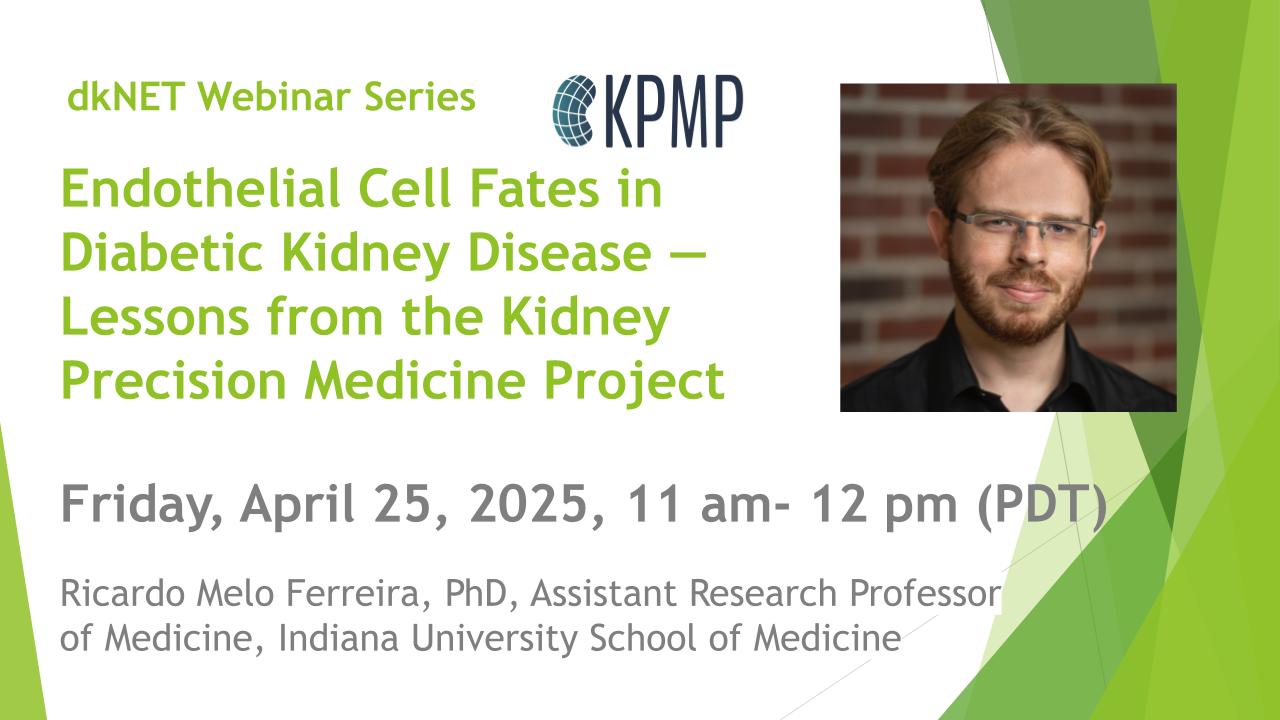Leaving Community
Are you sure you want to leave this community? Leaving the community will revoke any permissions you have been granted in this community.
[Recorded Webinar and Slides are Available Now!] dkNET Webinar: Uncovering Novel Mediators and Mechanisms of Leptin Action
*Watch recorded webinar here: https://youtu.be/dhIG8q8q5ss
*Webinar slides: https://www.slideshare.net/dkNET/dknet-webinar-uncovering-novel-mediators-and-mechanisms-of-leptin-action-02252022
dkNET New Investigator Pilot Program in Bioinformatics Awardee Webinar Series
Join dkNET Webinar on Friday, Feb. 25, 2022, 11 am - 12 pm PST
Presenter: Alan Rupp, Ph.D. Research Investigator in Metabolism, Endocrinology, and Diabetes, University of Michigan Medical School.
Abstract
Rates of obesity and diabetes continue to rise, impacting the health and wellbeing of millions. Treatment options are limited, in part because of our incomplete understanding of the biology of hunger and energy expenditure. The hormone leptin is produced by adipose tissue and signals the repletion of adipose energy stores to leptin receptor (Lepr)-expressing neurons in the hypothalamus. Leptin- and Lepr-deficient humans and rodents display marked hyperphagia, reduced energy expenditure, and extreme obesity. The crucial cellular targets (i.e., Lepr neurons) and transcriptional mechanisms that mediate these responses remain largely unknown, however. To reveal the cellular architecture of Lepr cells, we performed single nucleus RNA-seq of the hypothalamus in lean and obese rodents and macaques and in enriched mouse Lepr neurons. We identified over a dozen distinct Lepr neuron populations distributed across multiple hypothalamic nuclei, including a novel conserved population of Lepr neurons that is marked by Glp1r expression and which displays strong transcriptional responses to diet-induced obesity. Deleting Lepr from these Lepr/Glp1r cells resulted in excessive food intake and weight gain, revealing the importance of these for the control of energy balance by leptin. In contrast, we found that ventromedial hypothalamic (VMH) Lepr neurons represent a distinct class of VMH neurons that promote energy expenditure. Finally, we showed that leptin signaling during obesity remains intact in a subset of hypothalamic Lepr populations, while other Lepr neurons that play key roles in energy balance exhibited blunted responses. Overall, these studies reveal the neuronal structure of leptin action and highlight cell populations and molecular pathways that represent potential targets for obesity therapy.
Dial-in Information:
https://uchealth.zoom.us/meeting/register/tZUkf-uuqDgtGtUvRe2LtF1C-9UXAvWiNURA
Upcoming webinars schedule: https://dknet.org/about/webinar





